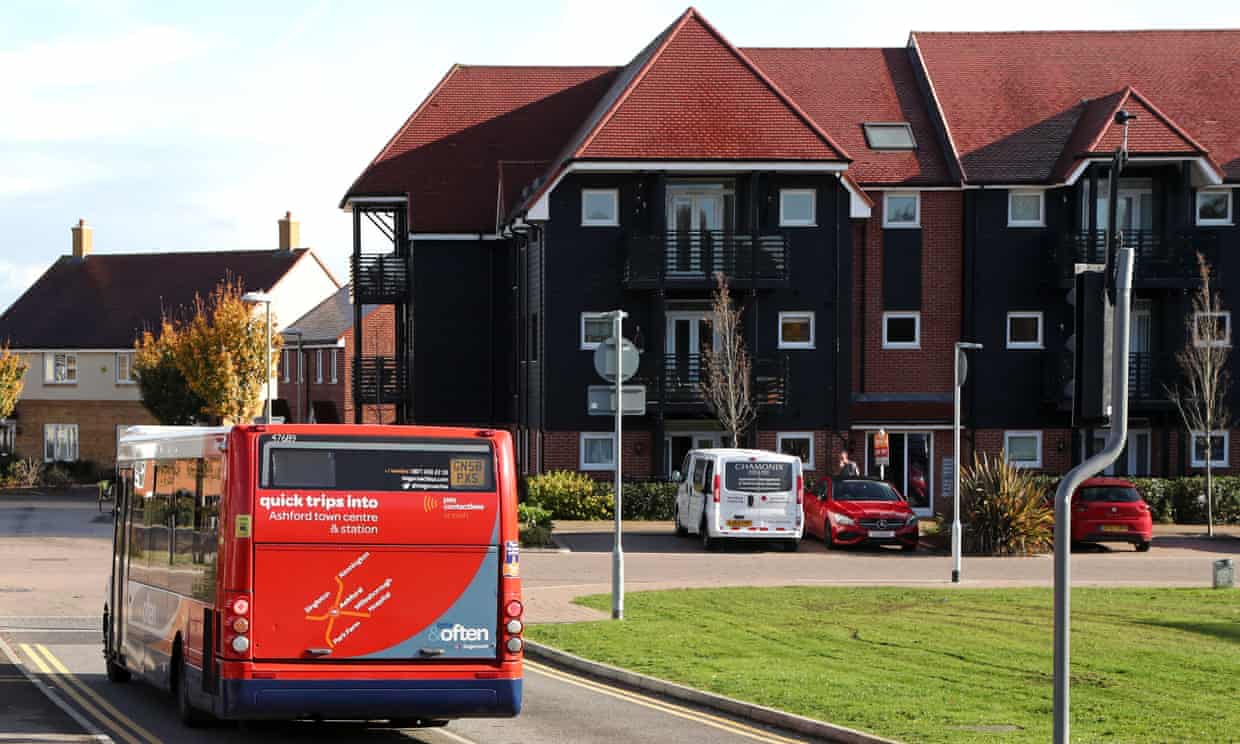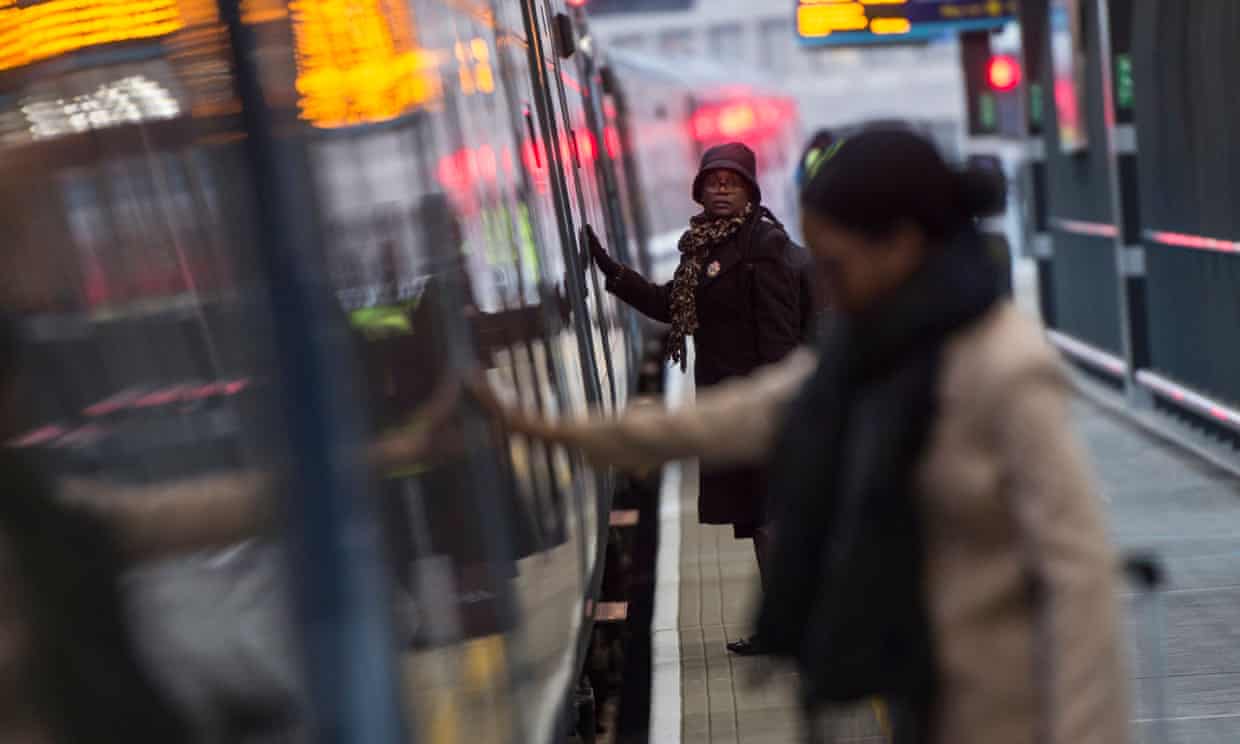
Labour’s pledge to cut rail and bus fares would benefit the whole country
by Lynsey HanleyMillions can’t afford to run a car but have to, simply because the public transport system near them is so appalling
For anyone who thinks public transport subsidies are a sop to the middle class, allow me this one anecdote. In 1989, my mum’s life was revolutionised by a bus. We had no car and lived on a large estate that had a regular bus running through the middle of it, but no service reaching the dense tangle of streets and walkways away from the main road. The last few hundred yards from the terminus to our house was a struggle with shopping, a danger at night, and a death-trap in icy weather.
Then the local authority decided that transport was a right, not a luxury. For two years, while its funding lasted, a minibus called the Hoppa circled the estate every 10 minutes, dropping people at their front doors or picking them up before heading to the shops, the schools, the library, or relatives who lived on the other side of the estate.
Sometimes it was empty but just as often it was full to bursting, usually with young parents and older people, chatting and helping each other to keep their shopping trolleys upright. They knew the driver by name and sang to his radio. At least they did until it stopped. It’s not an exaggeration to say that my mum became depressed when it did. That bus was more than a vehicle: it was a form of recognition, a form of care.
The idea that good transport is a right to be enjoyed by everybody, regardless of income or car ownership, has disappeared from the political agenda since buses were deregulated in the mid-1980s and the rail network privatised a decade later. Transport policy across the parties has been focused for decades on the nuts and bolts of travel: road-building, congestion and keeping London’s transport system regulated – and, ergo, its economy pumped – while the rest of the country suffered.
For this reason Labour’s manifesto commitments, “founded on the principle that transport is an essential public service”, are potentially as revolutionary as that Hoppa bus. It’s the first time in decades that the social role of public transport has been prioritised, let alone acknowledged, by the major parties, and where the political dominance of the private car has been challenged.
And boy, do we know it. The Tories have announced they will spend £28.8bn building and augmenting major roads, ignoring the fact that road-building creates more traffic rather than relieves it. Meanwhile, Jeremy Corbyn promises to electrify the bus fleet and decries public transport cuts that have left people “isolated and stuck at home”, and the Tories describe it as “Labour’s war on the motorist”. (That’s tomorrow’s Daily Mail headline sorted.) Indeed, no sooner does Labour announce huge cuts to rail fares and season tickets than a chorus of achingly sensible voices rise to point out that – actually – they would be subsidising middle-class commuters.

True, 42% of those who have made more than 50 train journeys in the last year live in a household with a combined income of £40,000 or more, while just 10% live in a household where the combined income is less than £20,000 a year. But doesn’t that only prove that you have to be well-off to afford the train? How about a future in which decent public transport is something available to everyone, whenever and wherever they need it?
I use buses every day and trains several times a week. I live in Liverpool, have family in Birmingham and have used pretty much every grim privatised service on the network, including Northern’s manifestly unfit Pacer trains. Believe it or not, labourers, airport service workers and nurses use trains to get to work. You find this out if you get a train at 5.30am.
Most trains between Liverpool and Birmingham are now standing-room only, since London Northwestern was allowed to extend the service to London without being required to add more carriages. These four-coach trains now carry northern soldiers returning to regiments down south, cabin crew going to Heathrow, welders from Aintree who can only get work in the Midlands. I’m sure they’d love to hear how cheaper rail fares only benefit middle-class people.
Taking into account January’s proposed above-inflation fare increases, Labour states that rail fares will have risen by an average of 40% across the country since the Tories entered power in 2010. Bus fares outside London rose by 71% between 2005 and 2018, to an average of £2.40 per trip. There’s a somewhat empty satisfaction to be gained from crowing at Labour cutting fares when it’s clear they are too high across the board: £2.40 for a bus fare is high enough to put off many people from travelling altogether.
Meanwhile, Friends of the Earth is criticising the three main parties for failing to cut car use by making it more expensive to drive, and this is where green campaigners, never mind the Greens themselves, reveal a willingness to prioritise fast transition over just transition. There’s nothing progressive about making people pay extortionate amounts to get around just because they’re using the “wrong” kind of transport.
It can’t be made more expensive to drive before public transport is improved: for many people living in peripheral and rural areas it remains far cheaper and more convenient to drive than to take the few, ridiculously expensive, buses that exist. Driving takes up a disproportionate amount of the budget for people on low incomes: when those in poverty lose their cars, many risk losing their jobs, their contact with family members, and their ability to buy decent food. In other words, their ability to meet basic needs.
As always, mobility is fundamentally about class. Without decent public transport, millions of people drive when they can’t really afford to run a car. And when car ownership is out of reach, too many people are cut off from the everyday realities of modern life: that you have to go beyond your immediate neighbourhood for work, social contact and a diet that does not rely on takeaways. Decent buses and trains, accessible to all, are not an option – they are a necessity.
• Lynsey Hanley is a writer and the author of Estates: an Intimate History and Respectable: Crossing the Class Divide